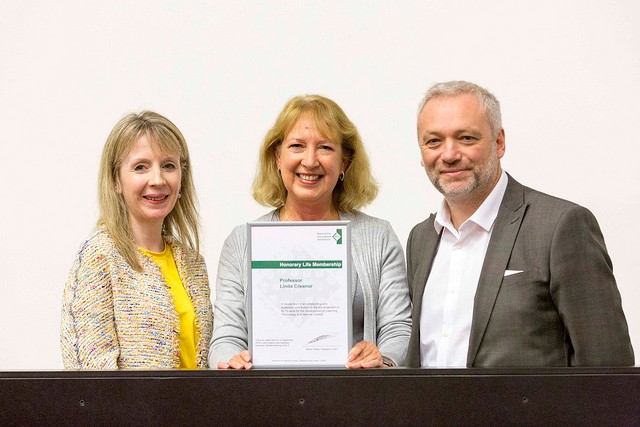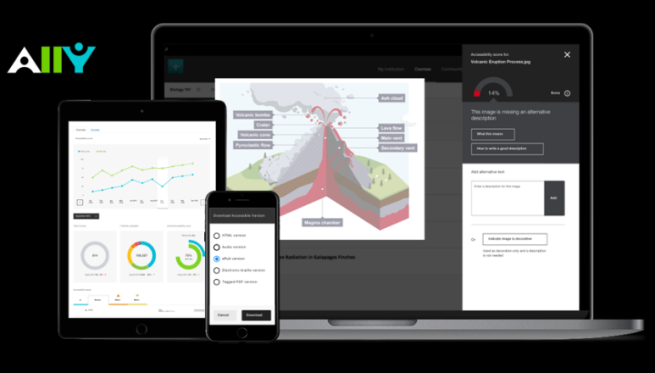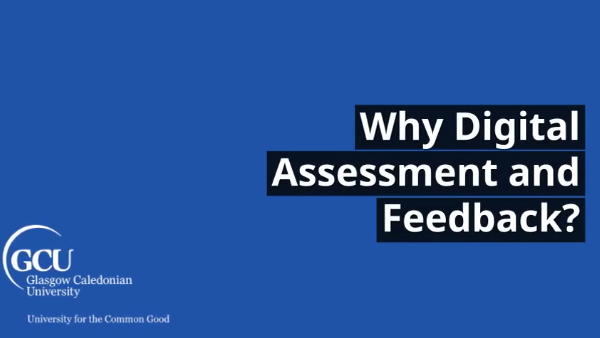Our very own Linda Creanor was awarded the highest honour from ALT (Association of Learning Technology) that of Honorary Lifetime Member at the association’s annual conference in Manchester last week.

Linda accepting her award from the Chair of ALT (Sheila MacNeill) and President of ALT (Professor Martin Weller)
The award is given to individuals nominated by Members who have made an outstanding and sustained contribution to the advancement of ALT’s aims for the development of learning technology in a regional, national or international context through research, practice, policy-development, leadership, or a combination of these.
Reflecting on the important contribution Linda Creanor has made to ALT and the wider development of Learning Technology, Dr Maren Deepwell, chief executive of ALT, added, ‘Linda has played a significant role in ALT becoming the organisation that it is today. After giving a significant amount of time to the organisation in her roles as Trustee, Vice Chair, Chair and President, Linda has continued to play a significant role in the growth of the organisation – particularly through the development of the ALT Scotland Members Group. Linda’s community spirit, combined with with active research profile, sharing of practice and her overall enthusiasm for supporting and developing the effective use of learning technology, is an inspiring example of the impact of empowered professionalism’.
We all extend our congratulations and thanks to Linda for all her work here at GCU which has contributed to national and international level impacts through ALT.









